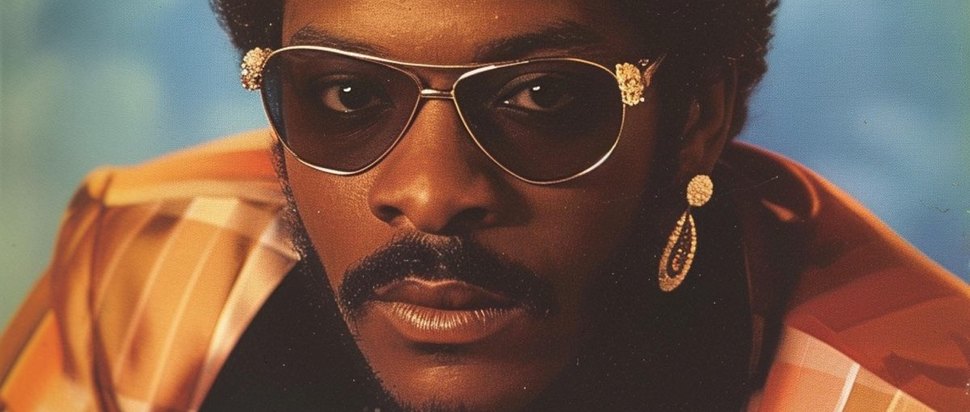Bars, Beefs & Butt Lifts: Drake vs Kendrick vs AI
Exploring the popularity of an AI-generated song about Drake getting a Brazilian butt lift, one writer questions the increased presence of AI in the creative process
If you are anything like me, acutely and interminably online, then you may have come across the song BBL Drizzy in some form or another. BBL Drizzy, released by a comedian who goes by the online handle @kingwillonius, features an AI-generated Motown singer waxing poetic about Toronto rapper Drake’s rumoured cosmetic butt lift surgery. The song gained mainstream appeal when it was sampled by Missouri hip-hop producer Metro Boomin in a beat of the same name.
Earlier this month I found myself at Sneaky Pete’s in the Cowgate on a Sunday of all nights (the perks of being a freelancer I guess). Behind the decks was DJ and producer Nikki Nair, whose Boiler Room set with Hudson Mohawke had recently made the rounds in the electronic music scene. As the clock struck 2am, a familiar butt lift-themed sample blasted its way across the dancefloor. A joke song written by an American comedian, performed by an amorphous amalgamation of thousands of soul and Motown tracks, scraped and compiled by a generative AI model, had been sampled and mixed by a talented producer in an Edinburgh club.
But how did we get here? How did a song about Drake getting a Brazilian butt lift rack up almost five million plays on SoundCloud?
Over the last two months, online music discourse has been dominated by an extensive and brutal rap battle between two of North America’s top artists, Kendrick Lamar and Drake. In the middle of May, the Billboard top 100 was being summited by Kendrick Lamar’s Not Like Us, the rapper’s most recent track in the rap beef.
Back in mid-April, in response to Drake’s first diss track in the saga, former collaborator Rick Ross, feeling burned by Drake’s inclusion of his name on Push Ups hit back two days after the single’s release with Champagne Moments. Ross’s track resurfaced long-dead rumours about Drake’s alleged rhinoplasty and liposuction surgery, posting the phrase 'BBL Drizzy' on his Instagram story. Inspired by Ross’s words of wisdom, King Willonius picked up the pen and got to writing the lyrics for his magnum opus. The track flew under the radar until Metro Boomin, also upset at Drake’s Push Ups, sampled the AI tune in his own work in early May. [Editor's note: On the day we published this article, Drake teamed up with Sexyy Red on U My Everything, in which he raps over a sampled version of Metro Boomin's BBL Drizzy.]
Singles written by humans and performed by generative AI models are nothing new, with 2023 seeing ghostwriter977 release heart on my sleeve, a track featuring AI-generated Drake vocals. Drake himself has dipped his webbed flippers into the AI pool too, with his second diss track, Taylor Made Freestyle, featuring generated verses from Tupac and Snoop Dogg in a bizarre attempt to put words in the mouths of Kendrick’s West Coast idols and contemporaries. Compared to BBL Drizzy however, these past attempts are nothing but a flash in the pan, with Metro’s/Willonius’ AI ditty gaining significant traction in hip-hop’s sample culture and beyond.
Hip-hop has always been a genre that relies heavily on cutting and chopping existing songs, reshaping them into something entirely new. BBL Drizzy follows this trend, with multiple versions and interpolations spreading like wildfire across the internet. The song uses AI to mimic hip-hop’s long-standing relationship to 70s soul and Motown LPs in a seemingly calculated attempt to draw in producers looking to sample the track.
Comedian King Willonius explains his rationale for using AI in his creative process in an article with Music Tech, saying: “I had an advantage over a lot of my peers, just in the ability to create at warp speed.” In a cultural landscape where artists are already able to produce music faster than ever before à la Viper and RXK Nephew, both of whom released more songs in a single year than The Beatles did in their eight-year run, AI expedites this process even further.
Although inarguably funny, the track seems to ring a little hollow; it disregards the artistry and skill of composition in favour of the instant gratification of synthetic production. But then again without AI, BBL Drizzy would never have existed. Had King Willonius wanted to create his track unaided by AI, he would’ve not only had to write, but compose and perform it in time for it to remain culturally relevant, a task that wouldn’t have been worth the time and money sink associated with that process.
The breakneck pace of the Kendrick-Drake beef created the conditions for King Willonius to create his song and consequently, BBL Drizzy has set a precedent for AI music, with its widespread use being the first of its kind.
Creative industries as a whole are currently facing a dilemma – on one hand generative AI is a tool that can make some of the most tedious jobs in the industry trivial (I myself have saved hours of my life by using AI tools to transcribe interview recordings) but on the other it seeks to replace creativity itself, offering nothing more than a production line of virtual slurry; music and art that looks and sounds ‘about right’ and nothing more.
